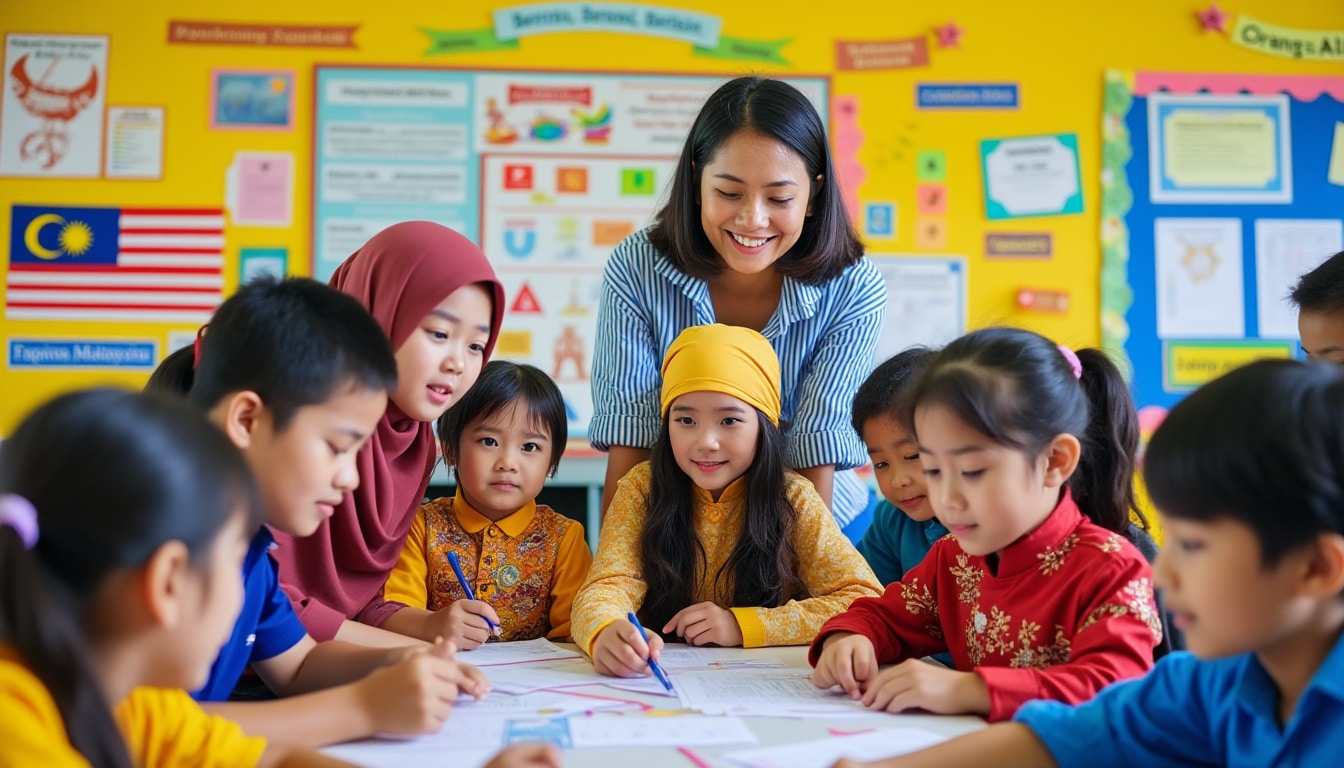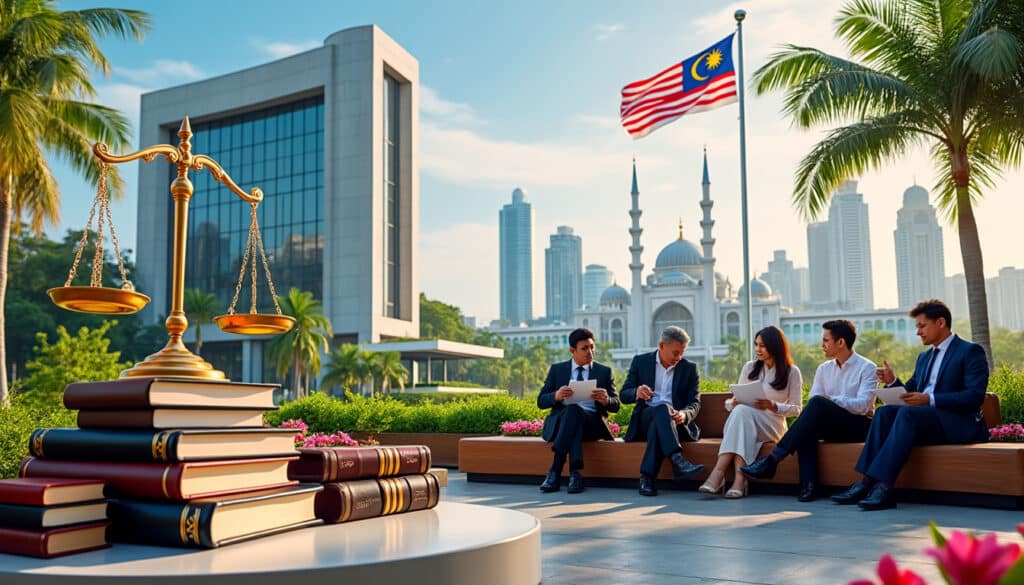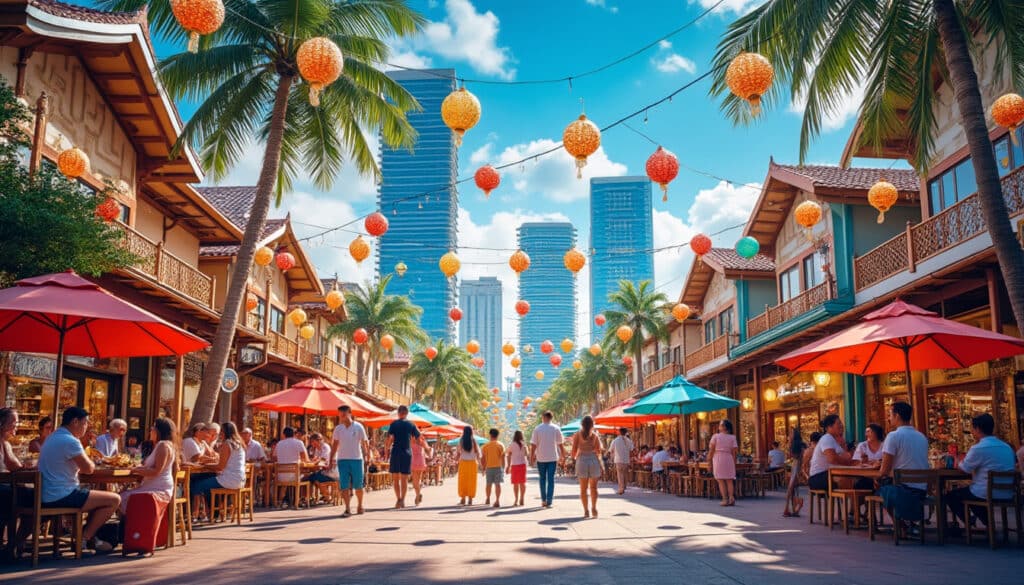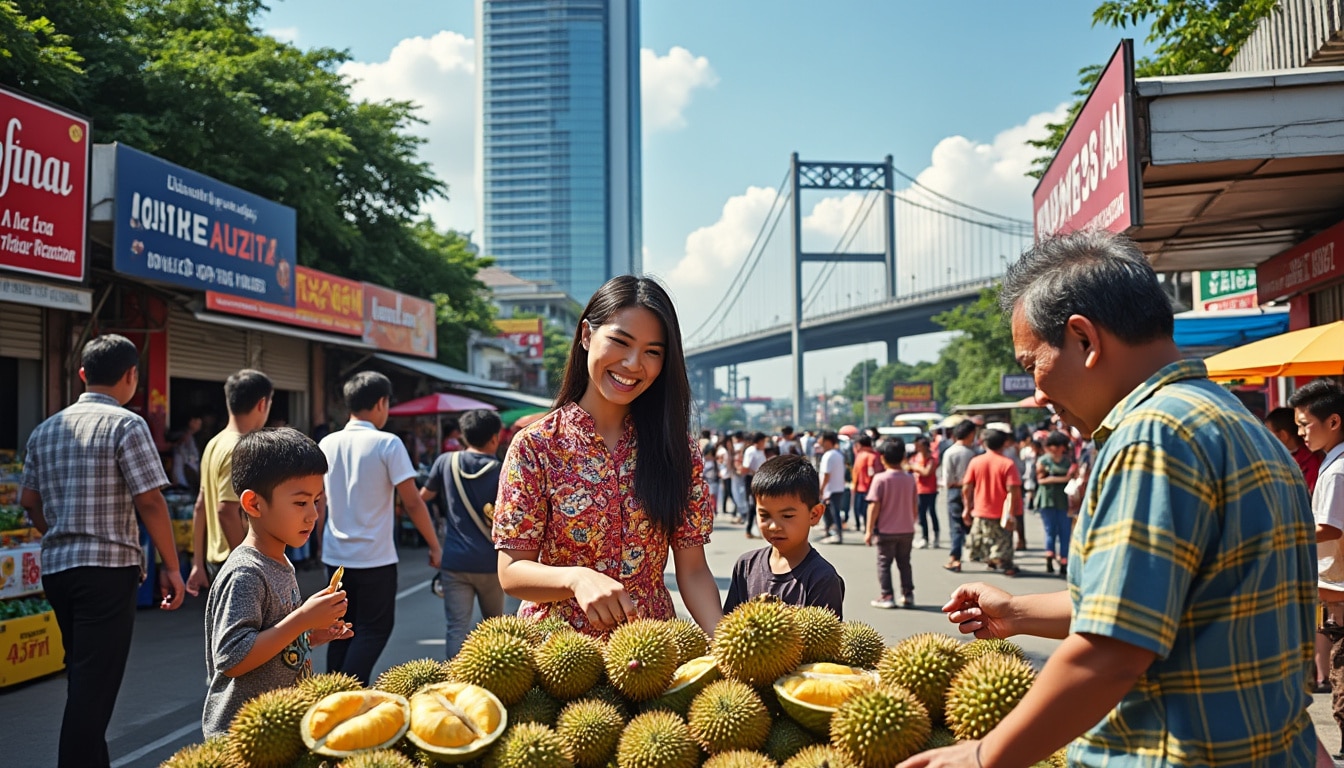Johor Bahru is a bustling Malaysian city marked by a rich tapestry of cultures and traditions. However, beneath its vibrant exterior lies a number of social and discrimination issues that warrant urgent attention. From racial prejudices in educational settings to xenophobic restrictions in housing markets, these challenges reflect broader societal undercurrents that pervade not just Johor Bahru, but Malaysia as a nation. Addressing these issues is crucial not only for the residents’ well-being but also for advancing Malaysia’s ambition to be a harmonious, progressive society.
Racial Prejudices in Malaysian Schools: A Persisting Problem
While Malaysia prides itself on promoting unity within a multicultural society, racial prejudices still prevail in educational institutions. Reports from students like Yasmin Raquq and Cassandra Chow from the University of Nottingham Malaysia highlight the entrenched biases in Malaysian schools. Yasmin observed hostility towards Indian and African students, especially after the appointment of a new principal. Such biases manifest through derogatory comments during school assemblies, aimed at denigrating Indian students as “troublemakers” and undermining the success of Black African students with offensive stereotypes.
Cassandra’s experiences in Johor Bahru further substantiate these claims. Instances of internalized racism, where students faced prejudice for speaking languages other than English, highlight the ethnocentric norms embedded in school policies. Prejudices went beyond language barriers, as darker-skinned students were disproportionately punished for violations that other ethnic groups were spared from. Such discrepancies in treatment are symptomatic of a larger problem where the educational environment fosters division rather than unity.
- 📚 Disparities in disciplinary actions based on skin color
- 🙅♂️ Restrictions on language usage among students
- 🕵️♀️ Ethnocentric norms controlling assimilation
Addressing these challenges requires a reimagined approach to education that celebrates Malaysia’s diversity. Introduction of moral education, promoting harmonious diversity over nationalist ideas, could pave the way for more inclusive classrooms. Furthermore, educators must be held accountable for perpetuating biases and imparted with training to support a discrimination-free learning environment.

The Impact of Discrimination on Educational Opportunities
Racial bias within educational settings extends beyond daily interactions, affecting students’ long-term academic prospects. Many students with academic excellence face hurdles in accessing elite educational opportunities due to discrimination. Instances where scholarships and grants favor students with fewer qualifications over those who excel are not uncommon. This has driven numerous promising students to seek education abroad, where meritocracy is valued over racial considerations.
For Malaysia to fulfill its potential as an education hub, fostering a truly meritocratic system is imperative. Policies that ensure equal access to education and opportunities based on merit, irrespective of race, can help bridge the gap and cultivate a more equitable and thriving scholar community.
Xenophobia and Racial Profiling: The Black Community in Malaysia
The Black community in Malaysia, including in Johor Bahru, frequently faces xenophobia and racial profiling. The tragic global awareness brought about by incidents like the death of George Floyd has amplified the narratives of those like Anne, a Nigerian student. Experiencing racial slurs and being wrongfully accused solely based on skin color highlights the precarious situation for Black Malaysians.
Incidents of racial profiling by law enforcement exemplify a systemic issue. Anne recounts an unsettling experience where she and her mother were stopped by the police due to racial bias. Despite cooperating fully, they faced baseless accusations and extortion attempts. These situations underscore a pressing need for reform in law enforcement practices to safeguard human rights.
| Issue | Impact | Solution |
|---|---|---|
| Racial Profiling | 🔍 Unjust detentions and accusations | 👮♂️ Police reform and diversity training |
| Xenophobia | 🚫 Limited social acceptance | 🤝 Community integration initiatives |
Organizations like Human Rights Watch, Amnesty International, and others have been pivotal in advocating for equitable treatment and urging Malaysian authorities to implement anti-discrimination measures. Greater collaboration with these bodies is essential in reshaping perceptions and establishing protective laws for marginalized communities.
Discrimination in Housing: A Barrier to Inclusion
Housing discrimination remains a significant issue for racial minorities, particularly the Black community in Johor Bahru. Signs with explicit exclusionary messages such as “0% Africans” showcase the blatant prejudice exercised by landlords. Without legal repercussions, this discriminatory practice continues unchecked, further marginalizing these groups.
- 🏠 No legal framework to prevent racial discrimination by landlords
- 🔕 Lack of platforms for victims to report discrimination
- 🛡️ Need for legislative protection against housing discrimination
The absence of comprehensive policies addressing racial discrimination in housing underscores the need for urgent governmental intervention. The introduction of anti-discrimination laws and complaint mechanisms would not only assist those affected but also portray Malaysia as a progressive nation embracing diversity.
Efforts by global organizations like Equality Now and Oxfam can support local advocacy, fostering environment-friendly policies that promote fair housing practices and protect vulnerable communities. This concerted effort could pave the way for inclusive growth across Malaysian society.
Challenging Beauty Standards: The Skin Whitening Phenomenon
Throughout Asia, and certainly within Malaysia, there exists a pervasive bias towards lighter skin tones, fueled by historical and societal factors. This has culminated in a widespread preference for skin-whitening products, which continues to pose significant health threats. Advertisements and societal norms perpetuate the association of lighter skin with beauty and success, leading many to use products laden with harmful chemicals like mercury.
The cultural preference for fair skin can be traced back to colonial times when social hierarchies placed Europeans at the pinnacle. The association of darker skin with outdoor labor and poverty has only cemented the color-based social divide. This ingrained prejudice is a significant driver for the multi-billion-dollar skin-whitening industry, with projected market growth despite significant health risks.
| Aspect | Trend | Impact |
|---|---|---|
| Historical Influence | 🕰️ Colonialism impacts | ☁️ Prejudices against dark skin perpetuated |
| Market Growth | 📈 Annual industry surge | ⚠️ Health issues due to product use |
Organizations like Amnesty International, UNICEF, and Global Fund for Women are advocating for awareness regarding the health impacts of such products. Educating the public on alternative beauty perceptions and the adverse effects of skin whitening could significantly reduce usage and transform societal attitudes towards inclusivity.
Solutions and Recommendations: Moving Towards Unity
Mitigating the social and discrimination issues in Johor Bahru requires a multi-faceted approach. Legal reforms to safeguard against racism, comprehensive educational improvements, and community engagement are foundational steps. Listed below are some proposed solutions:
- 💼 Enact anti-discrimination laws in housing and education sectors
- 🌍 Encourage community-based dialogues to promote inclusivity
- 📚 Integrate moral and ethical education that highlights diversity as an asset
Transparency International, along with social advocacy groups like The Social Media Advocacy and Youth for Human Rights, can play an instrumental role in driving these initiatives. Through collaborative efforts, Malaysia can aim to become a robust model of cultural integration and social equilibrium.
Embracing such proactive measures will not only bridge social divides but reaffirm Malaysia’s commitment to universal human rights and multicultural harmony.
FAQ
Here are some frequently asked questions about social and discrimination issues in Johor Bahru:
Q1: What are the main causes of social discrimination in Johor Bahru?
A1: Discrimination in Johor Bahru is driven by entrenched racial biases, historical influences, and lack of sufficient legal protections against xenophobic practices, particularly in education and housing.
Q2: How can racial segregation in schools be addressed?
A2: Racial segregation can be mitigated by implementing equal opportunity policies, training educators on cultural sensitivity, and revising curricula to celebrate cultural diversity and inclusivity.
Q3: How prevalent are skin-whitening products in Malaysian culture?
A3: Skin-whitening products are widely used due to sociocultural preferences for lighter skin, driven by historical biases. Awareness and education on their health risks are crucial for societal change.
Addressing these FAQs provides a clearer understanding of Johor Bahru’s societal issues, aiding in the formulation of effective solutions..

Legal Information and Rules in Johor Bahru
Johor Bahru, a vibrant city in Malaysia, stands at the crossroads of traditional charm and modern innovation. For anyone residing, doing business, or simply exploring Johor Bahru, understanding the legal landscape is crucial. This bustling metropolis is not only known…

Calling and communication rules in Johor Bahru
Johor Bahru, the bustling capital city of Johor, offers a unique blend of cultural diversity and historical richness, making communication an interesting topic to explore. As a city strategically positioned just across the strait from Singapore, Johor Bahru is a…

Criminal status and entry to Johor Bahru
Johor Bahru, a vibrant gateway city in Malaysia located just across the straits from Singapore, is a hub of travel and commerce. However, for many potential travelers, a critical question arises: how does one’s criminal status impact entry into this…

Drinking and age restrictions in Johor Bahru
Navigating the ins and outs of Johor Bahru’s drinking scene can be an intriguing experience for locals and visitors alike, given the city’s unique blend of cultures and regulations. Here, understanding the drinking age and alcohol regulations is not just…

Holiday openings in Johor Bahru
Johor Bahru, the lively capital of Johor, Malaysia, is renowned for its unique blend of cultural heritage and modern attractions. The holiday season in Johor Bahru is synonymous with vibrant festivals, bustling markets, and opportunities for both residents and tourists…

How to move to Johor Bahru legally
The allure of Johor Bahru, Malaysia’s second largest city, lies not only in its diverse culture and strategic location but also in its potential as a modern urban oasis. Connected to Singapore via the Johor-Singapore Causeway, Johor Bahru is rapidly…

Smoking, drugs, and red light laws in Johor Bahru
Johor Bahru, a vibrant nexus for culture and transnational commuting, is more than just a gateway between Malaysia and Singapore. The city, bustling with culinary vibrancy and architectural charm, has its fair share of complexities, particularly when it comes to…

